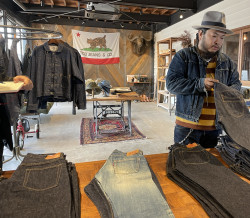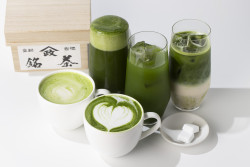
November 4, 2010
Misaki Kobayashi
The squash star gets ready to defend her All-Japan title
By Metropolis
Originally published on metropolis.co.jp on November 2010
 When Japanese soccer players or baseball stars head abroad to play, they’re usually treated like minor royalty. Everything’s laid out on a plate. Most of them earn decent money, too, and often have a bilingual TV announcer wife to take care of all the difficult little things in life. That doesn’t work if you’re a squash player, though—not even if you’re the Japan No. 1.
When Japanese soccer players or baseball stars head abroad to play, they’re usually treated like minor royalty. Everything’s laid out on a plate. Most of them earn decent money, too, and often have a bilingual TV announcer wife to take care of all the difficult little things in life. That doesn’t work if you’re a squash player, though—not even if you’re the Japan No. 1.
At 15, Misaki Kobayashi told her father she wanted to go and live in Malaysia to train with a higher level of player. Dad took her down, stayed three days and said, “See ya,” leaving Misaki on her own (well, in the hands of her coach). She didn’t speak a word of English or Malay. At 16, she was joined by her younger brother, also a budding squash player, and they rented an apartment in Penang.
“The training was hard, and I had to learn English to communicate,” Kobayashi (in black) tells Metropolis. “The coaches taught me all the basics, like how to hold the racquet, how to run, how to hit certain points, tactics. It was basically starting over from zero.” Along with squash, Kobayashi learned to speak decent English and grew to enjoy the spicy Malay food.
She stayed for four and a half years, turning pro in 2007, and returned here the following year to fulfill her ambition of becoming the All-Japan champion while still a teenager. To do that, she would have to beat the pinup girl of Japanese squash, Chinatsu Matsui, her senior by 13 years and a four-time champion. “I looked up to her,” Kobayashi says. “She’s a really good player and had lots of experience.”
After going up 5-0 in the final set of the 2008 All-Japan Championships quarterfinals, Kobayashi blew her lead and handed the victory to Matsui. “It was a mental thing,” she admits. “I thought I could win at 5-0, but then I screwed up everything.”
In 2009, although they were effectively the top two players in the country, the tournament’s seeding system meant that they met in the semifinals. Kobayashi took a 2-0 lead, only to see Matsui pull back to 2-2. In the fifth, Kobayashi took a 7-3 lead.
“I remembered the year before and I was so scared,” she recalls. “I just told myself not to do the same thing again, to be calm and relax and concentrate.” She did, and went on to become the youngest-ever champion at 19.
“I felt it was meaningless unless I was No. 1 in Japan,” she says. “It was also important because I had to find sponsors. Squash is not so popular in Japan, so I have to be No. 1.”
In the world rankings, Kobayashi is just outside the top 50, although she hopes to break that barrier before the year is out. In May, she beat the 14th-ranked player in the world to reach the quarterfinals of the Asian Senior Squash Championships, and she has also won two international WISPA satellite tournaments this year. She’ll be part of Japan’s team at the Asian Games in China later this month, and believes they have a fighting chance at getting the bronze.
Since returning from Malaysia, Kobayashi has quit her club team and is being coached by former No. 2 men’s player Ron Tanno. She also plays against the current men’s champion, 22-year-old Yuta Fukui, who is recovering from an injury but should be on hand to attempt a third successive title at the All-Japan Championships this month.
“He’s easily the best in Japan,” Kobayashi says. “But he’s been injured this year and lost to Shinosuke Tsukue.”
At 20, Kobayashi fears no one in Japan, and has the determination to make a serious dent on the international scene—not to mention the charm to turn squash into a much bigger sport here. First, she must defend her hard-earned title at the All-Japan Championships. But no one’s betting against her doing that.
All-Japan Squash Championships
Nov 5, 10am, ¥500; Nov 6-7, 10am, ¥1,000. Saitama Squash Stadium S-Cube. Tel: 03-5256-0024.







